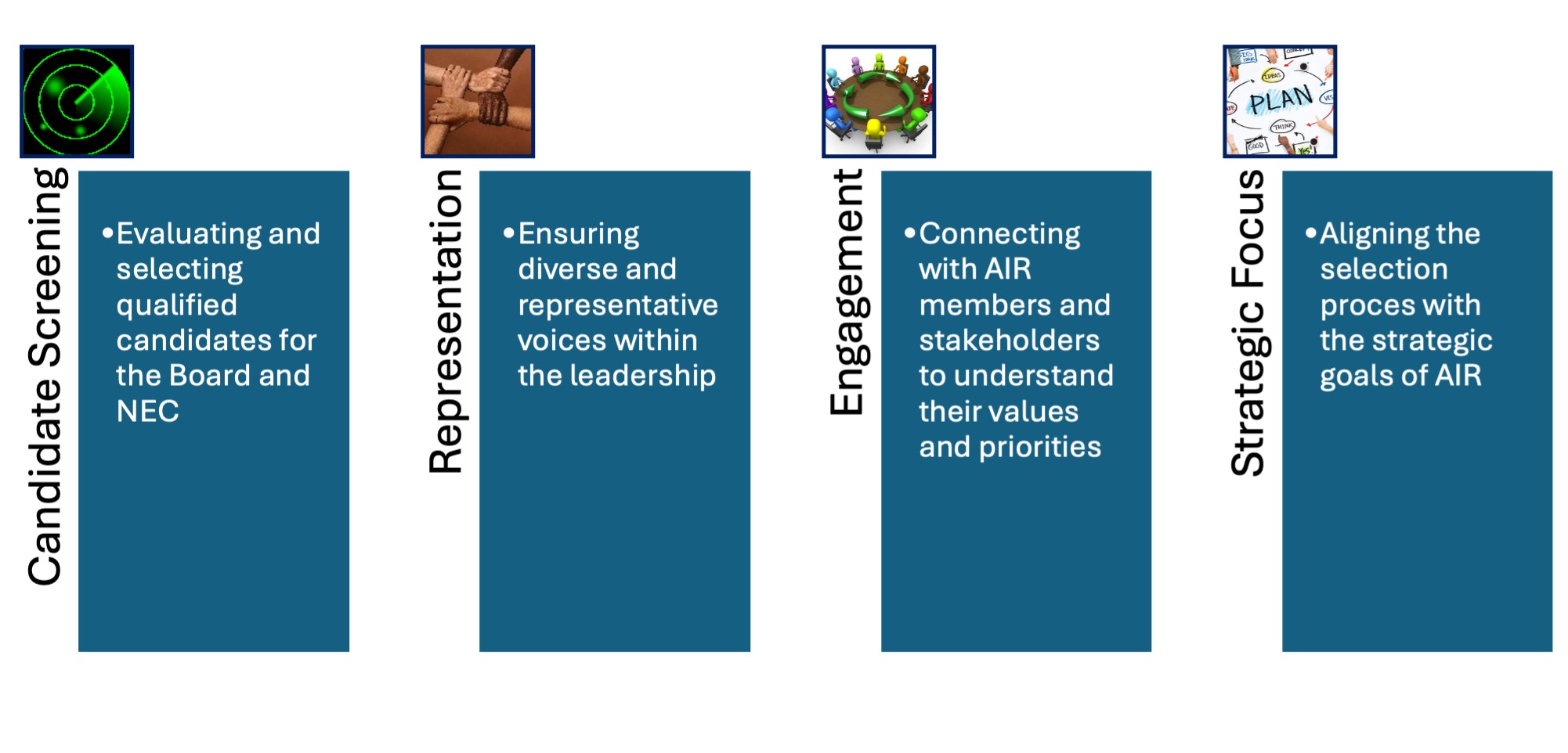Shape the Future: AIR Leadership Opportunities Await
“If service is beneath you, then leadership is beyond you.” This powerful quote is attributed to Bishop Dale Bronner, a well-known pastor and speaker who has emphasized the importance of servant leadership. Serving others prepares you to lead others. Serving others fosters qualities that are essential for effective leadership, such as empathy, humility, and a deep understanding of the needs and challenges of those you aim to lead. Through service, individuals gain practical experience and insights that can inform and enhance their leadership capabilities.
When thinking more broadly about volunteering your time and service in the field of higher education, several benefits come to mind. This act allows you to impact policies, improve educational standards, and support student success. It also provides opportunities for networking with like-minded professionals, developing skills such as leadership and project management, and gaining personal fulfillment from contributing to education. Additionally, volunteering helps build a supportive community and offers professional growth through leadership roles and committee participation, which can advance your career.
Within the Association for Institutional Research (AIR), serving on the Board of Directors and the Nominations and Elections Committee (NEC) not only contributes to the governance and strategic planning, but also allows volunteers to connect with a broader network of professionals dedicated to institutional research and higher education. These connections can lead to new opportunities and collaborations, in addition to providing a profound sense of satisfaction from contributing to a cause you are passionate about.
AIR provides flexible volunteer opportunities ranging from minimal time commitments to multi-year elected roles. The diverse voices in AIR’s decision-making processes enhance the organization's representation and growth. The Board of Directors serves our membership and stakeholders by incorporating their values and priorities into policies that inform the direction of the association. The Board regularly monitors the progress made on policies that benefit AIR’s members and stakeholders. The NEC offers a unique opportunity to influence the future direction of the association by participating in the selection of its leaders and ensuring diversity and adherence to governance principles. The NEC actively recruits and maintains an open, inclusive, and transparent process with representation, honoring fairness of the process for all who are interested in engaging.
The NEC’s roles in AIR leadership nomination and election process

For the betterment of our association and higher education, we strongly encourage AIR members to self-nominate and nominate others to be considered for the 2025-2026 Board of Directors and the Nominations and Elections Committee. The NEC fosters a culture of continuous improvement by producing a diverse and qualified slate of candidates annually, balancing the need for detailed information while minimizing the burden on respondents. We seek to incorporate the power of your voice in our decision-making. Please navigate to the Nominations & Elections Process site to learn more about these elected roles. To be considered for a leadership position, nominees must be current members of AIR and have at least three years of prior membership in the association—not necessarily consecutive.
Volunteer with AIR today, because it offers personal and professional growth, networking opportunities, and the chance to leave a legacy by contributing to impactful projects.
If you’d like to learn more about the Board and NEC roles and responsibilities, access the AIR Governance Leadership Opportunities Guide. The NEC welcomes questions about the nominations process. Feel free to reach out to any of its committee members.
Please consider nominating yourself or a colleague for an opportunity to help shape our shared future as members of the Association for Institutional Research.
Yesenia & Timothy
 Yesenia Espinal is Associate Vice President of Data Analytics, Howard University
Yesenia Espinal is Associate Vice President of Data Analytics, Howard University
 Timothy Chow is Director of Institutional Research, Rose-Hulman Institute of Technology
Timothy Chow is Director of Institutional Research, Rose-Hulman Institute of Technology
Long Description
The graphic contains the following four section headers and descriptions:
- Candidate Screening - Evaluating and selecting qualified candidates for the Board and NEC
- Representation - Ensuring diverse and representative voices within the leadership
- Engagement - Connecting with AIR members and stakeholders to understand their values and priorities
- Strategic Focus - Aligning the selection process with the strategic goals of AIR
